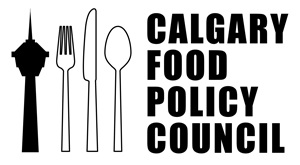Conference Board of Canada: Wolf in Sheep's Clothing
"One's basic nature eventually betrays itself..."
Although the 2nd Canadian Food Summit (April 9/10 Toronto) hasn't even started, the controversy has. In fact, the Canadian food security & policy world may have it's biggest dust up ever if the Conference Board continues its tone deaf, stack the deck maneuvering. Rejecting an entire food movement is not a recipe for inclusion and consensus, but the Conference Board's myopia does have the elements required for a Food System Donnybrook.
Last year's "Summit" resulted in this controversy. (Loblaw's is one to talk)
The following letter, by Professor Jennifer Sumner, is a response to the Conference Board of Canada's "Canadian Food Strategy". It accurately captures the sentiment of thousands of Canadians working to build a just and sustainable food system. Here it is in its entirety:
********
As
many of you know, the Conference Board of Canada is preparing what it
calls a Canadian Food Strategy and asking for participation in its
preparation. I was contacted in early
December by the CBoC and asked to join a consultation in January, which
I agreed to. However, when I received the consultation primer (see
attached), it was clear to me that the CBoC was not preparing a food
strategy for all Canadians, but a
food industry strategy that would benefit large players in the global market.
After carefully reading the primer, I sent the letter below, to which I received no reply.
Jennifer Sumner
*********
Drs. Michael R. Bloom and Charles Le Vallée
Centre for Food in Canada
The Conference Board of Canada
Dear Drs. Bloom and Le Vallée
I have received and carefully read the document you provided for the upcoming CBoC Canadian Food Strategy consultation.
I
originally agreed to attend the consultation because it seemed as if
the CBoC was genuinely trying to address some of the serious issues
associated with food in Canada: growing
hunger, escalating food-related health problems, ongoing environmental
destruction associated with conventional food production and increasing
control of the global corporate food system.
Instead,
your consultation primer indicates just the opposite: no mention of
hunger, no connection between food-related health problems and the
corporations who peddle the ‘edible
food-like substances’ that cause these conditions, little recognition
of the globally recognized suite of negative environmental consequences
of conventional farming, and a call for increasing the scope and scale
of the global corporate food system.
Indeed, the primer should be titled “Canadian Food Industry
Strategy,” to honestly indicate to the public that this consultation
process not only involves the promotion of the Canadian food industry
(as is clear from your first pillar), but also constitutes
a vehicle for the food industry to move into the other four pillars –
areas that reflect “Canadians’ concerns and needs around safety, health,
security and sustainability.”
A
true Canadian food strategy would be focused on, first and foremost,
making sure everyone gets fed, much as the Canadian health-care strategy
makes sure everyone gets healthcare.
In contrast, your strategy aims to promote the visibility and
growth of the food industry and to treat Canadians’ concerns and needs
as private profit opportunities, not public moral obligations.
In
addition, your prescriptions represent a virulent form of neoliberal
economics that has been acknowledged as responsible for the ongoing
global economic crises and clearly only
benefits about 1% of the population – in this case the owners, senior
managers and shareholders of large multinational food corporations.
Instead of putting forward innovative alternatives to this discredited economic model, the Conference Board of Canada wants to
·
promote competition over co-operation
·
advocate free trade over fair trade
·
reduce or eliminate supply management (one of the only economic models that has made farmers successful)
·
increase the scale of
production and exports (instead of considering small and medium sized,
regionally-based production to ensure every Canadian is fed)
·
eliminate “unfair” regulations (unfair to whom?)
·
incorporate public and private industry standards (which consolidates private oversight of public issues such as food safety)
·
frame healthy food choices as new commodities (not behavioural changes such as eating more basic fruits and vegetables)
·
promote private,
voluntary environmental standards (which do little, if anything, to
ensure our environmental future is protected)
I am surprised that the Conference Board of Canada is asking the public to support its promotion of the food industry.
While corporate lobbying of government is a regrettable reality,
masking such lobbying as a national food strategy and a “shared national
vision for food that can promote collaboration and common purpose” is
dishonest, self-serving and morally corrupt.
Needless
to say, I will only attend your “consultation” if it changes from a
one-sided advocacy for a special-interest group to a dialogical
endeavour to build a Canadian food strategy
that focuses on the concerns and needs of all Canadians, not just the
food industry.
Sincerely,
Jennifer Sumner, PhD
Director, Certificate Program in Adult Education for Sustainability
Adult Education and Community Development Program
OISE/University of Toronto






2 comments:
This is important, though it's necessary to help you head over to it weblink: bb13 colors
Nice article, I like your article, Thanks for publishing this. By the way if you are looking for Online Tutor Calgary then you can visit our website.
Post a Comment